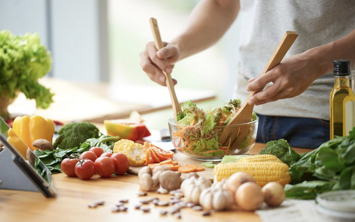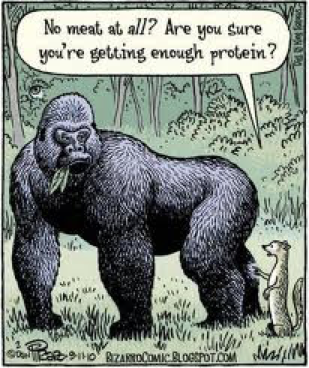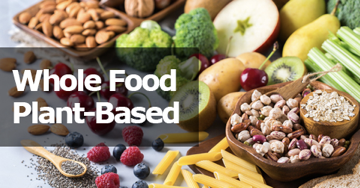How to Avoid Fatigue When Going Vegan/Vegetarian

I continue to hear from readers that are very interested in pursuing a vegan or vegetarian lifestyle and are wanting more information about this. How to start, and what to be aware of when making the switch to plant foods, are two common concerns.
I'll admit, it's been a journey for me, and a lot of trial and error along the way. With that said, here is one important thing those of you interested in eating this way ought to be aware of:
If you're not careful, you'll set yourself up for serious fatigue. And this tiredness will cause you to jump ship. So pay close attention to the tips given below (found on a number of favorite vegetarian/vegan sites, including www.savvyvegetarian.com):

First of all, it is NOT normal to be fatigued after adopting a vegan/vegetarian diet. Extreme tiredness could have a few sources, such as
a reaction to new foods, or food allergies
the digestive system simply adapting to a new way of eating You could be detoxing.
high or low blood sugar issues
vitamin B12 or iron deficiency
not getting enough calories
the body going through a detox (especially true if your previous diet included lots of processed sugar—donuts, cookies, cakes, pies, ice cream, syrups, sodas, etc. etc., and you're cutting them out)

One thing you can't blame for your fatigue is a lack of protein. Nutritional science has proven conclusively that plants provide all the protein our bodies require for health and repair. So no worries there.
But, nutritionists do suggest that if you are experiencing this ongoing fatigue, you might consider having your blood sugar levels tested and getting a medical checkup for food allergies and vitamin deficiencies, to make sure there aren't any health issues behind your tiredness and to set your mind at rest.

Meanwhile, here's the best advice on how to start a vegan/vegetarian lifestyle (things which also boost your energy as your body is adjusting):
Plan whole food snacks and turn to them between meals to raise and sustain your energy.
Take vitamin B12, vitamin C, and vitamin D daily.
Drink LOTS of water—at least 8 cups a day, minimum. This is besides tea, coffee, juice, and milk.
Get more rest. Eliminating meat can be a shock to the system and can likely lead to detoxification. Detoxing always calls for more sleep. Any major change in life requires more rest (surgery, divorce, marriage, a move, a death, even a diet change, for instance). So don't fight your body's plea for rest; be patient with it and honor it. You'll eventually see a big difference in your energy levels.
Get more exercise – yoga and walking are especially good for helping detox, and improving digestion. But any kind of exercise will help – just keep moving.
Add a lot more fresh veggies (raw and cooked) to your vegetarian diet. Much more than you think you need. Be sure to include lots of green leafy vegetables. All those vitamins, minerals and micro-nutrients will energize you like you won't believe!
Every day, eat whole foods: whole grains like brown rice, oats, barley or quinoa, nuts and seeds, beans and lentils for the vitamins, minerals (e.g. calcium, magnesium, iron). Don't overdo it, however. A normal serving size is 1/2 cup of cooked grains or beans and a small handful of nuts.
If you don't have much time in the morning, try making a breakfast shake, and take along a bag of unsalted trail mix, a protein bar and fresh fruit, or granola and yogurt for morning or afternoon snacks.
Finally, and this is CRUCIAL: Avoid foods with refined flour, sugar and fat (cookies, chips, crackers etc.), sodas, coffee, chocolate. The only thing this junk does is provide a fast high and a crashing low. This phony quick energy boost (always followed by a debilitating slump) just isn't worth it.
- www.healthdesigns.net
- www.savvyvegetarian.com
- www.tomcorsonknowles.com
- www.nutritionstudies.org
 Alice Osborne
Alice Osborne
Weekly Newsletter Contributor since 2006
Email the author! alice@dvo.com
